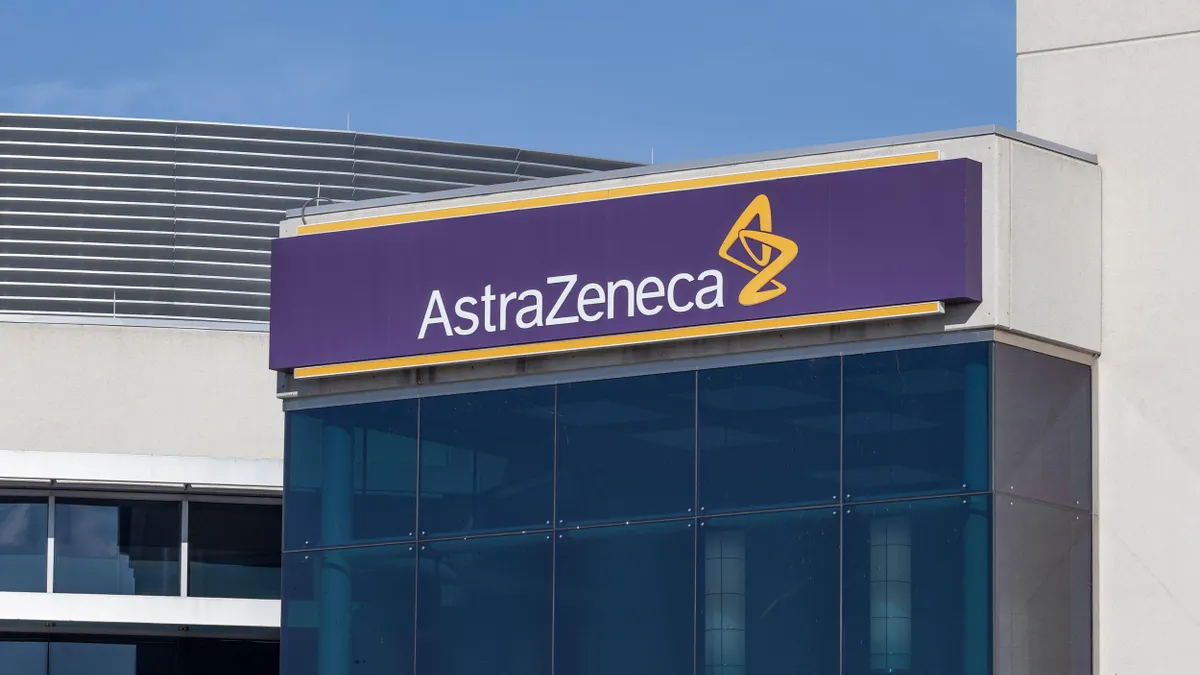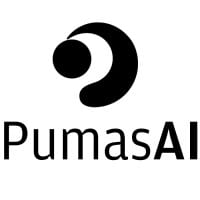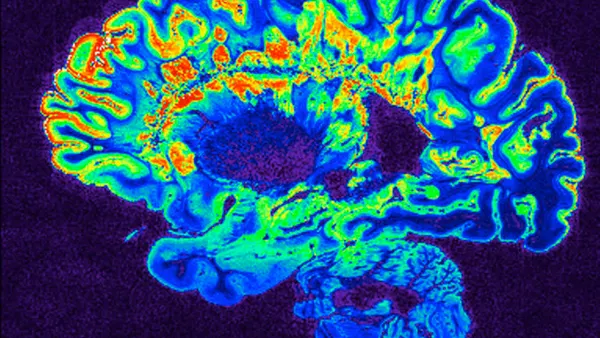Dive Brief:
- An experimental drug being developed by AstraZeneca significantly reduced blood pressure versus placebo in a Phase 3 study of people with either uncontrolled or treatment-resistant hypertension, the pharmaceutical firm said Monday.
- The reduction in mean seated systolic blood pressure associated with AstraZeneca’s drug was clinically meaningful, the company added. Called baxdrostat, the drug also met all of the study’s secondary endpoints and was “generally well tolerated.”
- AstraZeneca plans to share the trial data with health authorities around the world, and will present detailed study findings at the European Society of Cardiology Congress next month.
Dive Insight:
AstraZeneca acquired baxdrostat at the beginning of 2023 with a $1.3 billion buyout of CinCor Pharma, which it had licensed from Roche four years prior.
The drug, which works by blocking an enzyme that synthesizes the hormone aldosterone, had mixed results in Phase 2 testing. But AstraZeneca saw enough promise to bet low on the drug succeeding in late-stage testing, particularly as it held potential for use in combination with the company’s diabetes and kidney disease drug Farxiga.
AstraZeneca’s wager has now come good, with Phase 3 results the company plans to discuss with regulators. Should the company file for drug approval in either the U.S. or Europe, it will owe about $500 million more to CinCor shareholders via a contingent value right it extended as part of its 2023 deal.
AstraZeneca did not share detailed trial results in its statement Monday. In particular, it did not break down results by study participants who had resistant hypertension or those who had uncontrolled hypertension. Phase 2 results were positive in the former population, which is defined by use of at least three blood pressure medicines, but negative in the latter, which indicates use of two antihypertensive treatments.
The Phase 3 study enrolled 796 adults who had either type of hypertension and randomized them to receive either 2 milligrams or 1 milligram of baxdrostat, or placebo. The trial’s main goal evaluated the change from baseline in average seated systolic blood pressure for both doses compared to placebo at week 12. Secondary goals included an evaluation of the treatment’s effect in just those individuals with treatment-resistant hypertension.
“We are very excited with the BaxHTN Phase 3 results,” Sharon Barr, AstraZeneca’s head of biopharmaceuticals R&D, said in a statement. “These findings provide compelling evidence of baxdrostat’s potential to address a critical unmet need by targeting aldosterone dysregulation, bringing a novel mechanism to a field that has seen little innovation in over two decades.”
One new treatment, Idorsia’s Tryvio, won U.S. approval last year for use in combination with other blood pressure drugs. The treatment works by a different mechanism of action than baxdrostat.
AstraZeneca has previously said it expects sales of baxdrostat could eventually reach into the billions of dollars per year. The company is testing it as a treatment for primary aldosteronism and in combination with Farxiga for chronic kidney disease and heart failure prevention.















